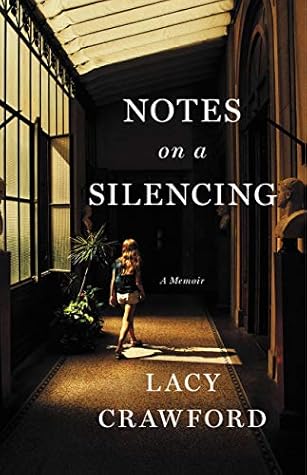More on this book
Community
Kindle Notes & Highlights
Little-known fact about victims: they can tell whether you believe them by which term you use when you ask what happened to them.
We were blessed with excellence, and excellently blessed, and our schoolwork and sports teams and choirs and clubs and shoulders thrummed with the Calvinist confidence that is actually a threat: if you do not become spectacular, it means you are not us.
Nor, I believed, could I earn it with—well, innocence. Because I was not wholly pure. Though to the best of my awareness that night at the party made nothing subsequent happen—nobody formed expectations of me as a result of it—still I held that I was guilty.
I include the events of the summer I was fifteen in open defiance of this presumed vulnerability, and to force into view what is to me the chilling logic that a girl who has explored a boy’s body, or permitted her body to be explored in any way, is thereafter suspect as a victim.
In other words: to believe in the perfect victim is to believe in no victim at all.
Besides immorality, the salient feature of entitlement, I think, is the total failure of imagination.
In bearing witness, we’re trying to correct a theft of power via a story. But power and stories, while deeply interconnected, are not the same things. One is rock, the other is water. Over time, long periods of time, water always wins. What I want to know, even now, is: how?
It’s a curious thing how children are wired to ask for help when hurt or frightened—Ouch! Help me!—but shame turns this inside out: I can survive this as long as nobody else ever knows. As though secrecy itself performed some cauterizing function, which, of course, when it comes to the matter of self-delusion, it does. I couldn’t talk about what had happened without having to let myself think about what had happened. The secret served me.
I knew virginity to be the teacup construction of a world that holds female sexuality to be a possession. And it hurt me. The thought hurt. It reminded me only of what I had lost. To speak of my virginity was to mock me, and Budge knew it. It was the glass slipper without the ball.
There is a contemporary inquiry into shame that suggests that shame is not as deeply rooted in guilt as in power.
“We shall not cease from exploration, and the end of all our exploring will be to arrive where we started and know the place for the first time.”
The trick was to never know how close you were, because relief was the killer of drive.
Ideas were roads out of town.
“Sure. You’re devastated. They stole your self-respect and ruined your sense of boundaries. It’s natural to take some time to get those things back.”
Their lie was meant not to convince, but to compel.
I learned that while the fallen woman may keep her unloved door plain and her drapes drawn, her circle small and her fire low—if she’s wise, I suppose, she will—the path to her back stoop will be well-traveled. I guarantee it.
“Nothing is more punitive than to give a disease a meaning—that meaning being invariably a moralistic one.”
“The denial by the listener inflicts…the ultimately fateful blow,” Brison writes. If nobody believes you, part of you cannot survive.
When the boys did what they did to me, they denied the third person on that bed. I had no humanity.
We hold these stories not in how we talk about them but in how we talk to each other about everything else.
The work of telling is essential, and it is not enough. There is always the danger that the energy of the injustice will exhaust itself in the revelation—that we will be horrified but remain unchanged. The reason for this, I suspect, is that these are stories we all already know. A girl was assaulted. A boy was molested. The producer, the judge, the bishop, the boss. To hear these stories spoken aloud is jarring, but not because it causes us to reconsider who we are and how we are organized. It is only when power is threatened that power responds.
“Love,” he said, “you want to know what I think?” I did. He held me and said, “Burn it all down.”
It’s so simple, what happened at St. Paul’s. It happens all the time. First, they refused to believe me. Then they shamed me. Then they silenced me. On balance, if this is a girl’s trajectory from dignity to disappearance, I say it is better to be a slut than to be silent. I believe, in fact, that the slur slut carries within it, Trojan-horse style, silence as its true intent. That the opposite of slut is not virtue but voice.
We were as blind to allegory as we were to privilege. Consequences were not our concern. The school’s rules were not even called rules—they were formally known as expectations. Here the children of the elite were trained not in right or wrong but in projections of belief.
Raising our voices is not an act of witness so much as one of accompaniment,
Here is the most generous gift of speaking up, of “coming forward,” as they say, and it’s a wildly gracious turn: that my story might cause others not to hear my voice but might allow them, perhaps for the first time, to hear their own.


